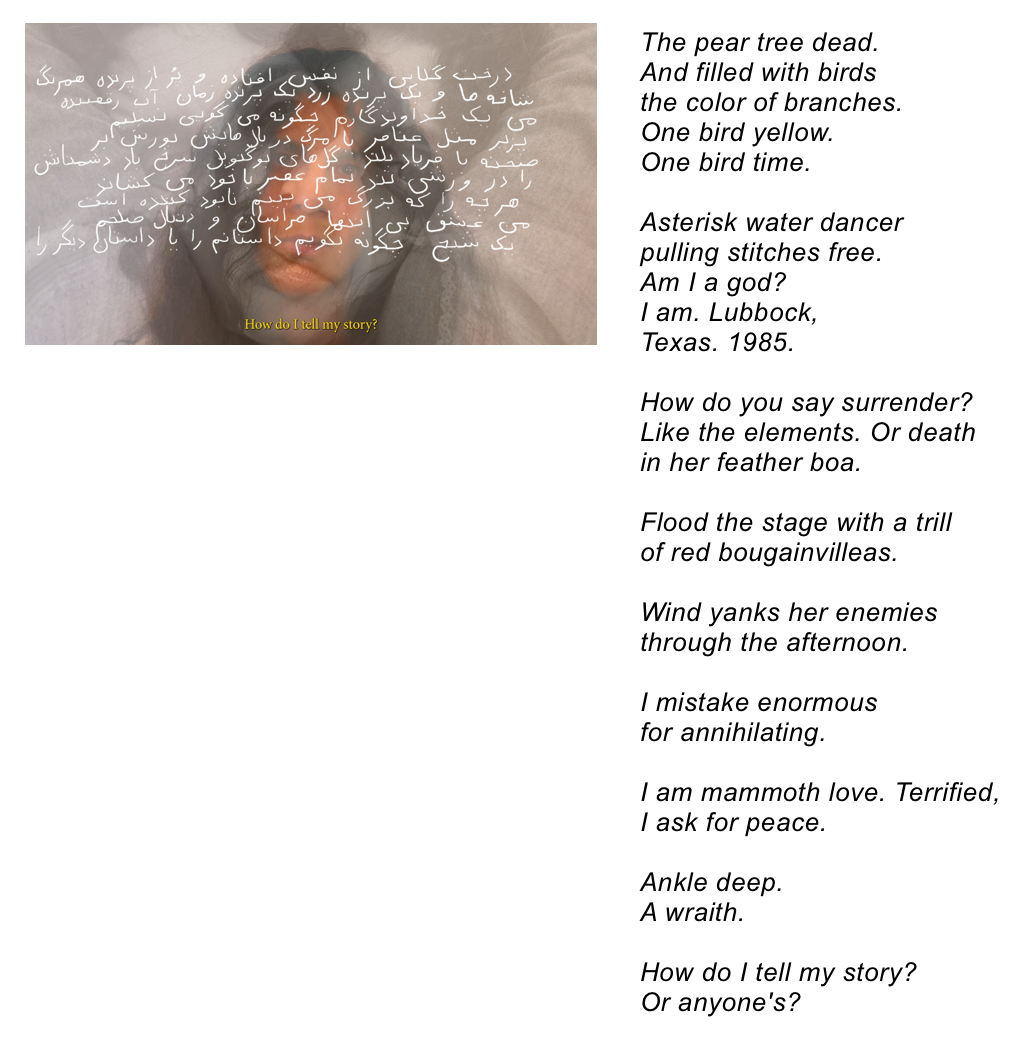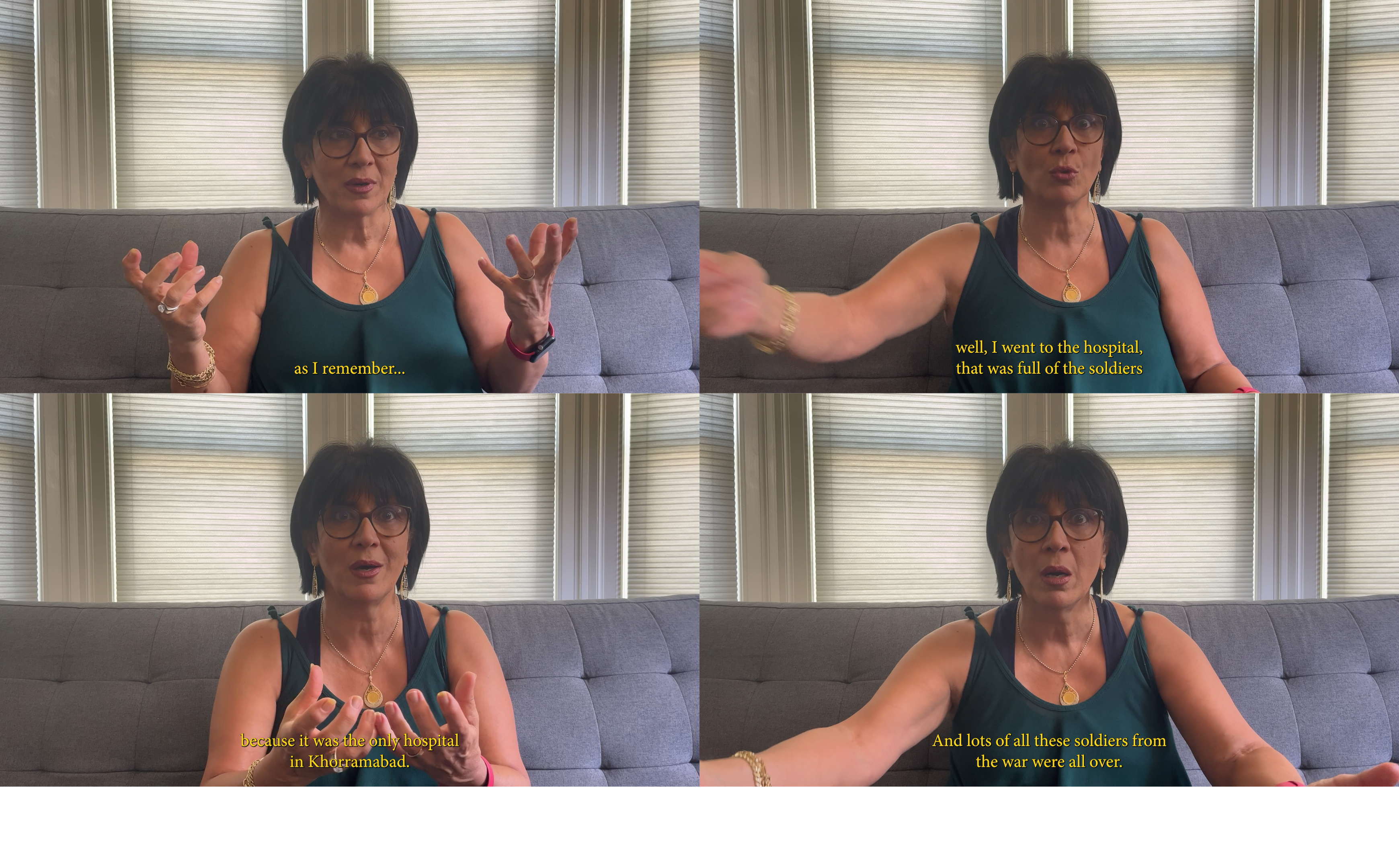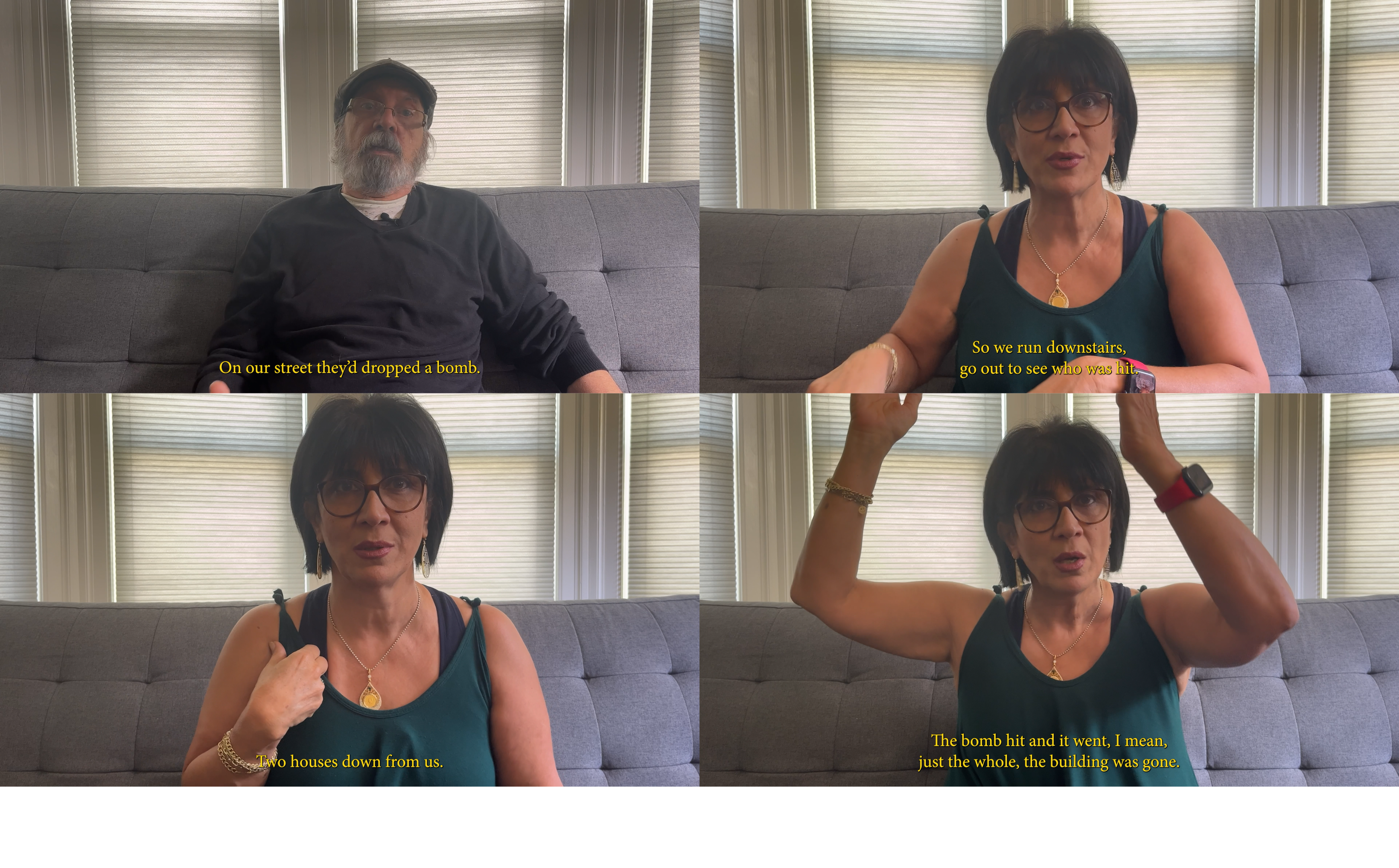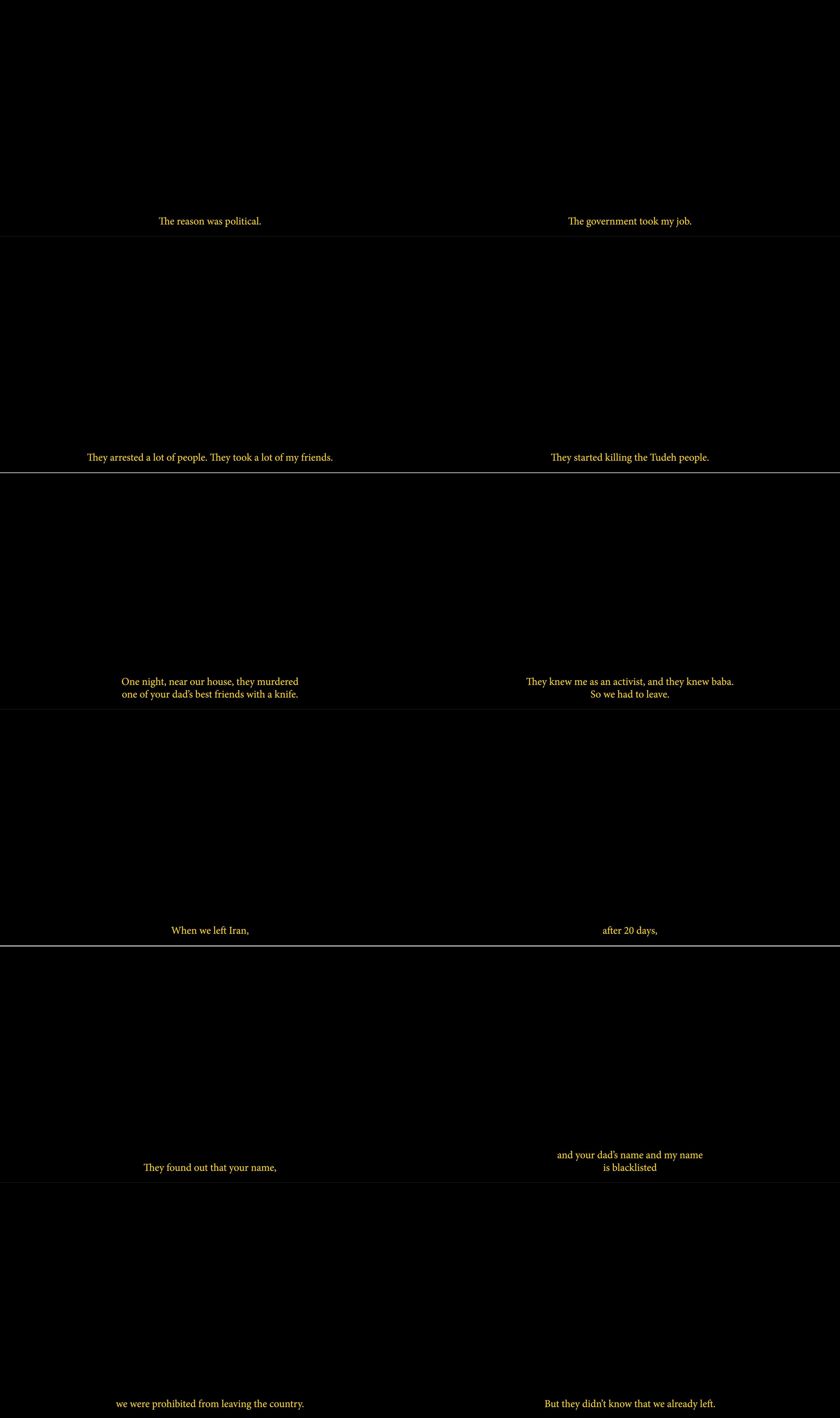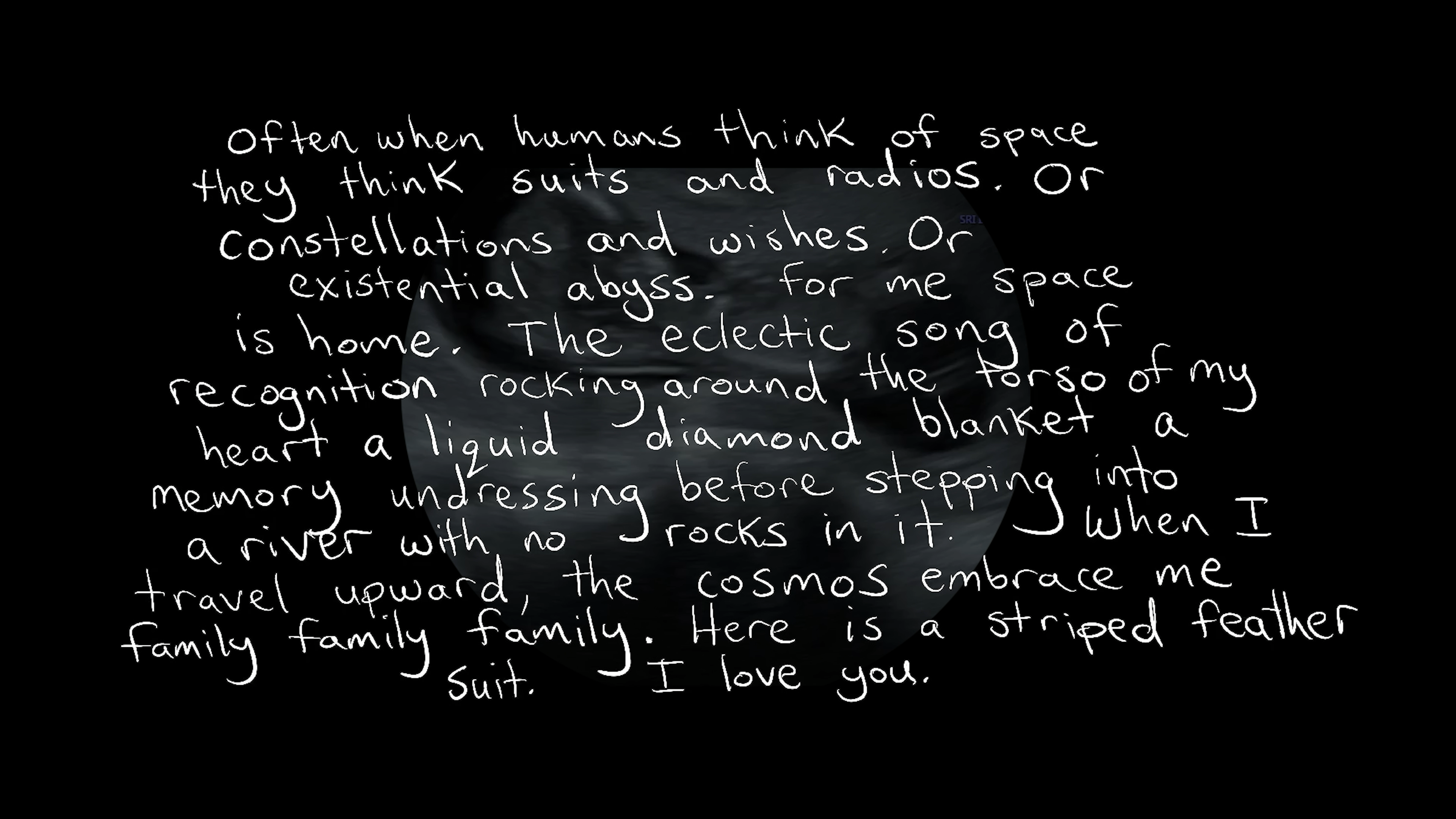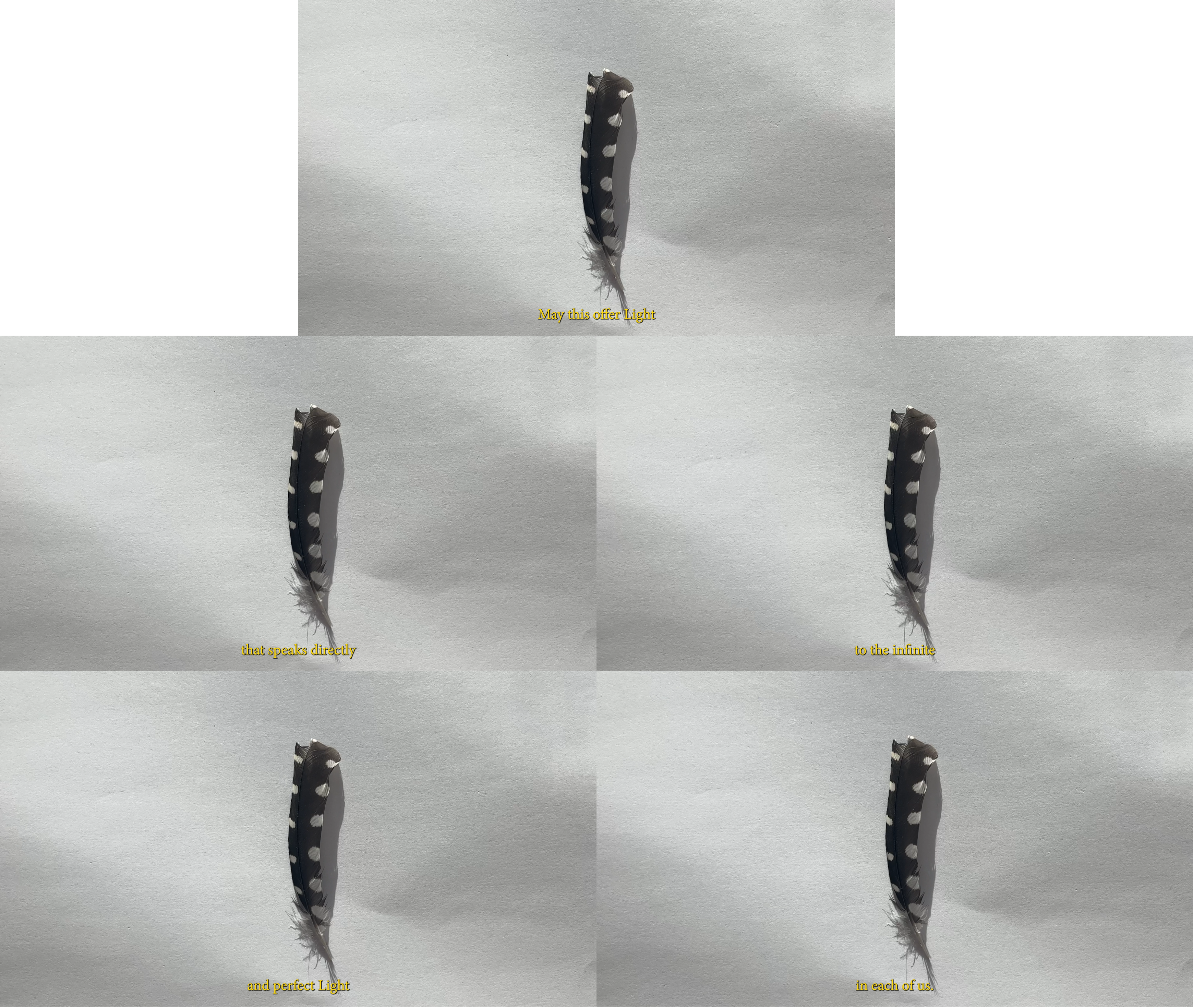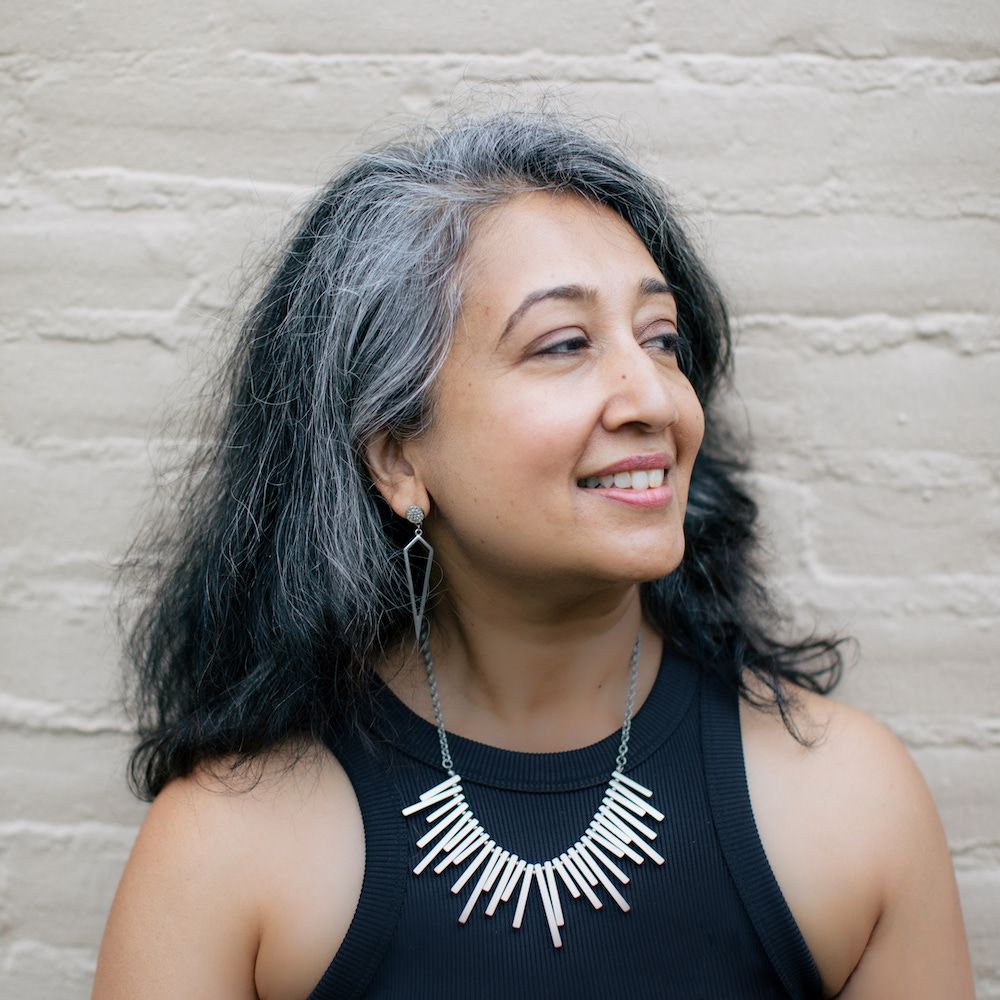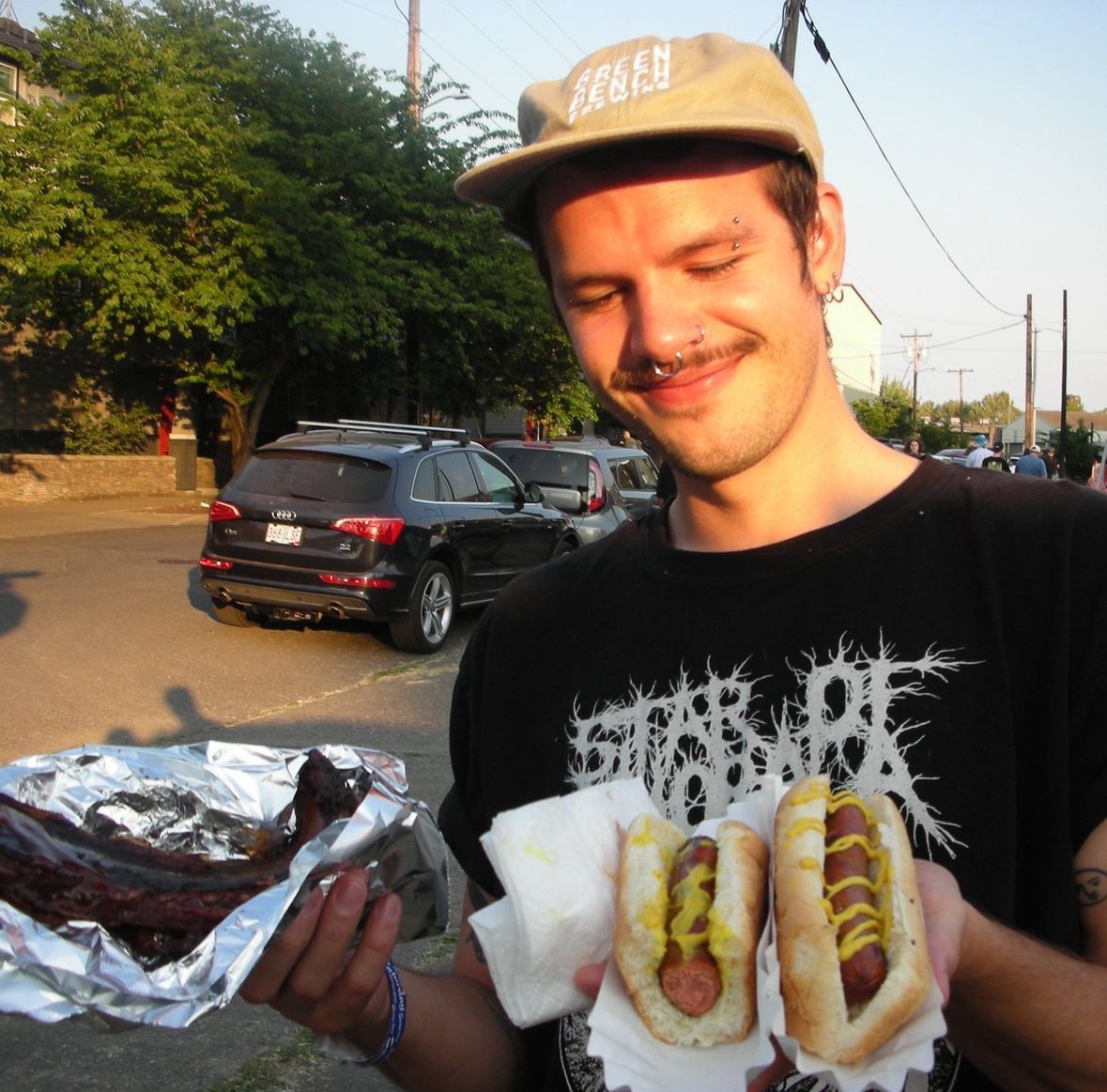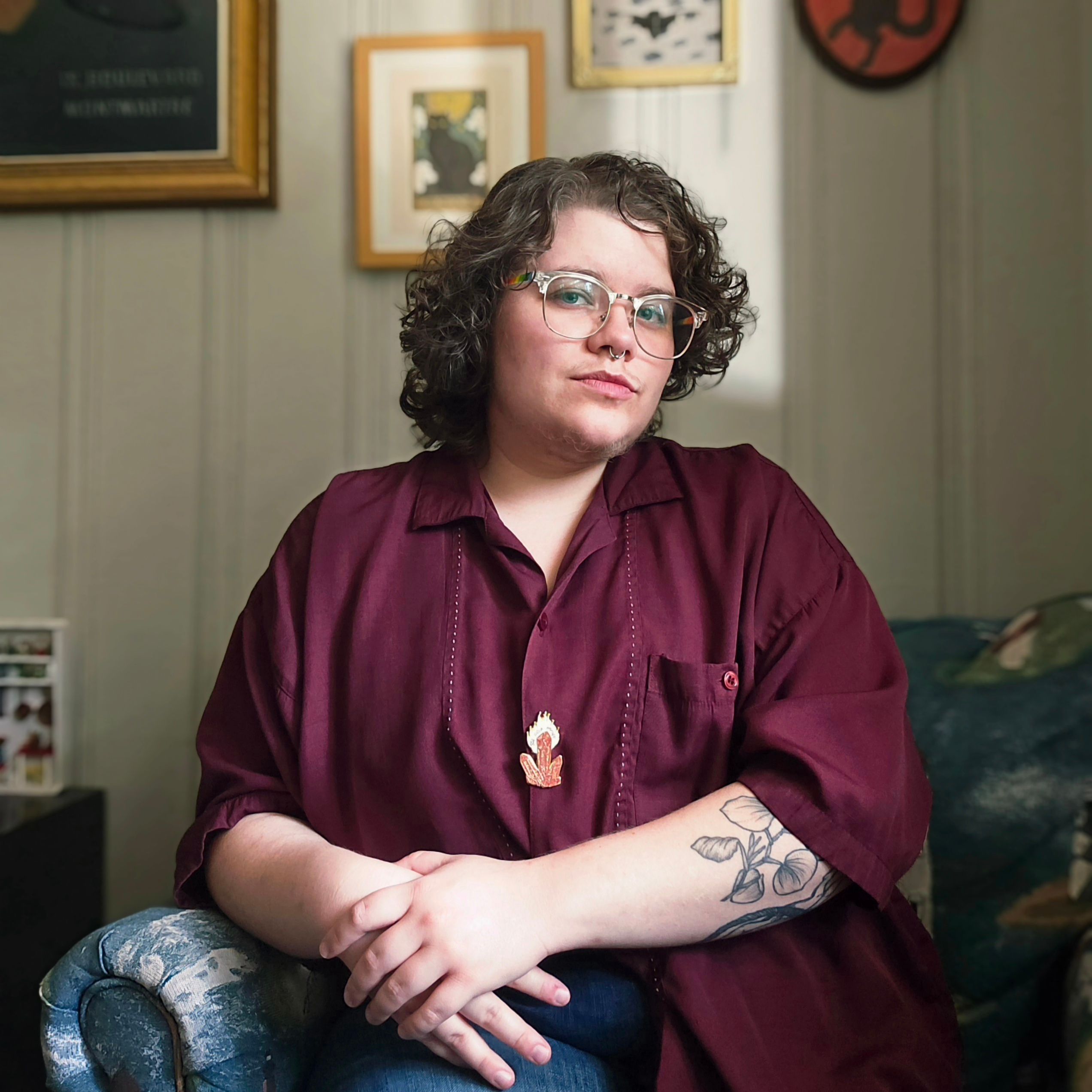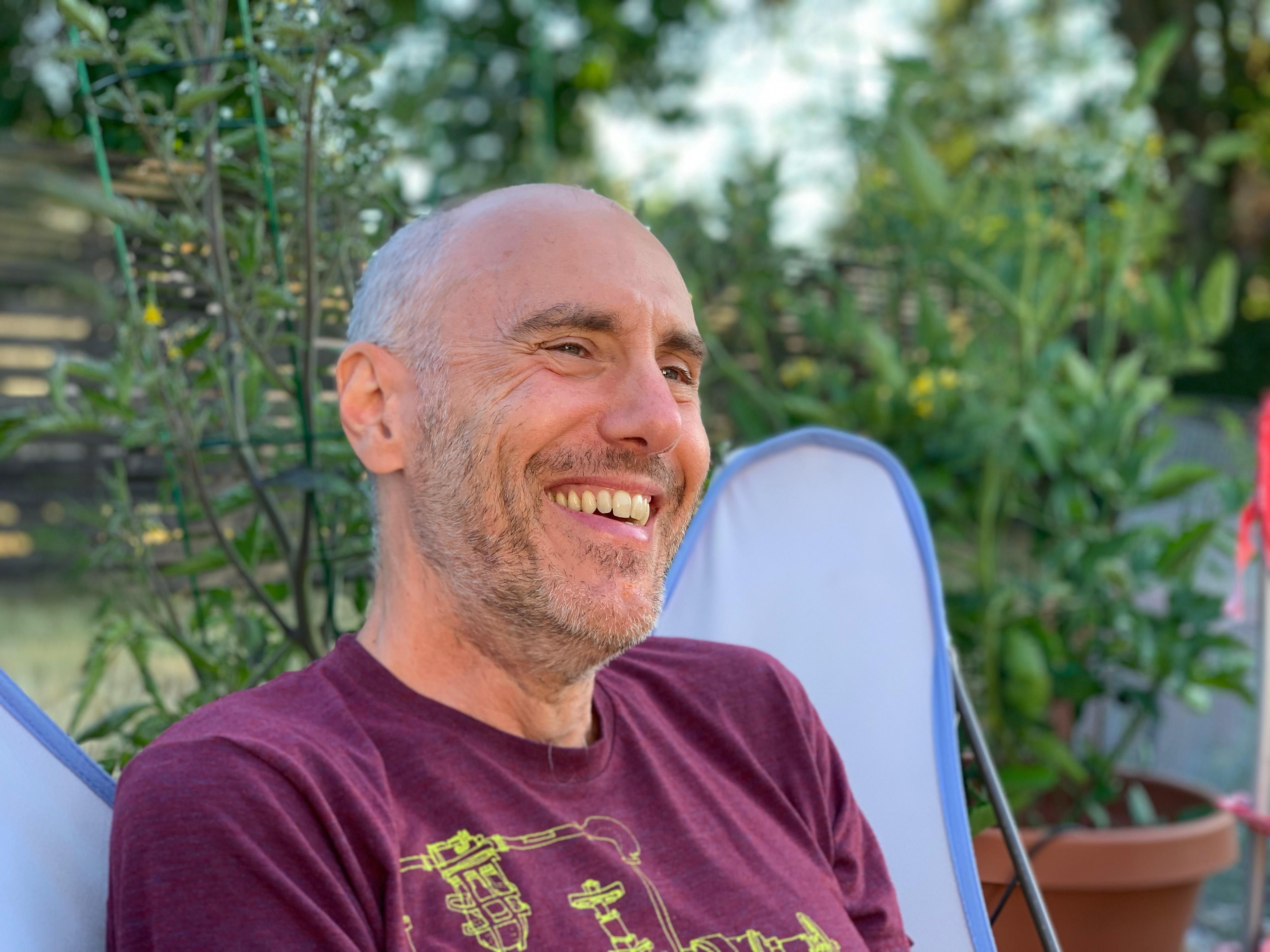You are returning home to Fresno, California, after accompanying your daughter on her move to Boston, a year and a half into the pandemic. A new era has dawned for her after her virtual graduation from college, in your old stomping grounds—the place for which you left an older stomping ground, Pakistan, over thirty years ago, which itself came after England. And all these moves are woven of intergenerational threads, red as the blood shed in the aftermath of the 1947 Partition of India, the largest migration in human history, some 15 million people displaced in a three-year span, they say. Boston is the place you called home for most of your American life, and where your daughter now lives, a stone’s throw from all the apartments you rented with other students, near the Davis Square subway stop on the red line, the connection to worlds that await. She has moved across the continent, and you feel the amputation in your body. Less the loss of a limb than it is a hollowing of the heart—the unbearable lightness of it different from Kundera’s imaginings because the weight of the emptying drops your heart to your stomach. You will grow accustomed to it sitting there as an ache, and time will dull the sharp edges of that ache as a river smooths a rock, as you remind yourself that you were once that daughter and, oceans away, your parents knew that hollowing.
Staring out the airplane window, you watch the night deepen even as you fly westward. It seems counterintuitive, this darkening trajectory. But you love being aloft in the clouds. It is an exquisite displacement, unlike all the others, to be suspended above the earth, between homes and faces you love, nowhere and everywhere at once. On the connecting flight you’re struck by the plane’s wing aglow in its own light above Denver and you pull out your cellphone to take a photograph. It is eight-thirty p.m. Pacific time.
What you don’t know is that in this moment your home in Fresno is aflame.
In his 1976 memoir, The Names, Kiowa writer N. Scott Momaday describes a moment in his life when he found himself “within an eyelash of eternity.” Since the fire, I think often of his assertion: “I should never again see the world as I saw it on the other side of that moment.”
Momaday gives time a physical dimension. But his statement elides a verb for how we get from one side of a salient moment to another. To say that we “cross,” “migrate,” or even “move” is much too intentional. Rather, we find ourselves there without volition or warning, an apparition in a physical space—powerless, and permanently displaced from all the moments on the other side.
Landing at Fresno airport and switching my cellphone out of airplane mode was that kind of moment. The screen exploded with texts and voicemails from the neighbor with whom I shared a wall and roof and attic in our two-unit structure. There’s a fire, get out if you’re in there! By the time I deplaned, made my way to long-term parking, drove out of it in my minivan, and pulled into my cul-de-sac, it was almost eleven-thirty at night. The fire was under control, only a couple of fire trucks still parked in the street, and the neighbors had disappeared into the safety of their homes. None of the other two-unit structures in our complex were affected.
I had been spared the sight of flames, but the wreckage remained. Dark, except for a light cast by the fire trucks, and in that lurid light I could see my neighbor’s charred unit and their garage, already boarded up. The tenants who called it home had left for shelter with family in the area. I had no family in Fresno.
At some point the owner of the next-door unit pulled up, got out of her car, and walked toward me. We mirrored each other’s composure. I have no memory of any words between us.
My own garage was agape, a big hole punched in the ceiling leading to the attic, my Prius covered in debris. The plastic tubs we called Memory Boxes, some of them still labeled in my ex’s hand, lay overturned, their insides spilling out on the ground: plush toys, cards, handmade ornaments. Somewhere in the garage, salvageable or not, was every letter ever written to me since I was twelve years old, sorted by year into plastic bags and lugged across continents—assurance that those people and places, those past lives, and my own bygone selves really inhabited time and space once. A couple of workers from the fire department who were still in there told me that the fire had entered my unit through the attic and leapt into the garage and the kitchen before they could subdue it.
Then a man and a woman pounced on me with forms affixed to clipboards, insisting on my signature. Who were they if they weren’t my insurance company or the HOA or the fire or police departments? What was a mitigation company? Was I liable for this $700 if I signed? Why were these people hammering away, boarding up my kitchen without sweeping the shattered glass out of the way? And where were my cats?
I pulled my Prius out of the garage. I’d have to assess the damage to it in the morning when I could see. Tomorrow, I told myself, I would take it through the car wash and call my auto insurance company. Tomorrow, I thought, though tomorrow sounded hypothetical, a mere abstraction. There was only today.
Stay out, they tell you. You shouldn’t be here. There’s no power, no water, and the air is toxic.
But you need to find Winnie, your indoor cat. Snickers, who comes in only to eat, knows how to be safe outdoors. But Winnie’s a homebody; you recall how he refused to come out of his cardboard box when you first moved into the condo. He’s not likely to have fled.
Besides, it’s midnight, a pandemic still raging, and you’ve just gotten off a plane. Where are you going to go?
You walk down the pathway and enter your unit through the side entrance, your small roller suitcase trailing behind you. Step into your living room, now full of a smoky darkness—where are the moon and stars tonight? There’s no power or running water, and no sign of Winnie. Muscle memory leads you to the kitchen, where you keep your flashlight. With the glass slider boarded up, the kitchen is pitch black. You can’t see but you can smell, and here the smoke is overpowering and triggers an instant headache, so you are glad for your mask.
When the hammering outside stops and the chaos recedes into the night, the silence falls thick and opaque around you. And sure enough, a few minutes later, Winnie emerges from under your daughter’s empty bed. You try to keep him out in the temperate September night—it would be safer for him, you think—but he keeps walking on broken glass like some desperate Jesus, howling to be allowed back in. So you give up and let him stay with you in the dark and smoky stillness.
When, as a young man, Momaday hears that his beloved day school in Jemez, New Mexico, has been gutted by fire, he returns to the site of the wreckage. This was the place where his mother had taught a generation of children, and where he himself had sat writing his first poem one night when he was home from college. “What a strange and solemn experience it was for me, one that I can neither express nor understand,” says Momaday. “I had the sense that I was looking for myself there among the ashes.”
I am still looking for myself among the ashes.
I thought I knew something about displacement. My parents had jostled me back and forth between Karachi and London as a child, a postcolonial couple trying to make it, now in their young nation and now in the seat of former empire. Once settled in Karachi, I grew up on my grandmother’s stories of the home she was torn away from in India: Patna, a provincial town by many accounts, but for Amma, and so for me, it was a lost Eden, a vision of home that her subsequent generations would try to approximate from continent to continent. Amma was a lifelong invalid. Now gout, now jaundice, now some mysterious illness for which there was no adequate explanation. All these decades later, I know: her heart had hollowed. She tried to fill it with her writing—every day, longhand in Urdu, moving from right to left, this woman whose education consisted mostly of Arabic and Farsi lessons from tutors who came to her home, filled the pages of tall, lined exercise books resembling the attendance registers that teachers carried in their classrooms. Every day for twenty years, she would read out a page or two to anyone who cared to listen. After her death, when her manuscript was finally gathered, it became a two-volume family memoir that is also, in the words of the writer and journalist Zaheda Hina, a social history of Patna, written in a dialect of Urdu that remains specific to that place and time.
When we cast our hollowings onto the page, we re-embody them. We give them shape and form. We re-member ourselves. In French, as in other Romance languages, it’s a reflexive verb: “Je me souviens,” I remember myself. We speak of the body of an essay and body paragraphs, literally externalizing our thoughts and feelings. We visualize the page with headers and footers; we give it headings and footnotes. It is as though we seek to exchange one host body for another on the page. Something to contain the dispossessions, the amputations.
But unlike Amma’s outpouring of words, mine dammed up when the fire displaced me. In the year and a half following the fire, I wrote only one brief piece, tellingly titled “Ash Tree Elegy,” its form not so much a body as an urn for the ashes. To lose your home from under you is one thing; for your body to be hollowed out of the words you thought you had is another, staggering loss.
Did the smoke smother the words in my throat? Or did I simply exchange the writerly re-embodiment for lessons I would never have otherwise learned? Who am I afterfire if not those lessons, learned bodily? I am even now looking to fill the hollow, if not with words, with lessons—something, anything, to make meaning afterfire.
I wasn’t refugeed by war or rendered permanently homeless. But I did learn what it was like to have nowhere to go. That first morning after the fire I stood at the glass door of my neighborhood Starbucks before opening time—seven a.m. in those days of restricted pandemic hours—not just for coffee, but to wash up, use the bathroom, and recharge my phone so I could call my home insurance company and figure out where to go, what to do next.
Afterfire, I learned to hunger for small acts of kindness. With a single exception, none of the neighbors who stood outside to watch my home ablaze knocked on my door the next day to ask if I needed anything. In time I learned to think of it as pandemic fatigue, relieved by one or two friendships that were actually forged by the fire. Three years after the fire in my home, I watched in horror as my TV screen displayed the ravagings of the Los Angeles fires a mere two hundred miles south of me. My one experience multiplied and magnified, entire neighborhoods reduced to ashes. I felt I knew a little of what many would go through in subsequent days. How time would stretch in a bewildering haze, no definition but that of uncertainty; how the normalcy in other people’s lives would become something to marvel at—aspirational, but utterly unreal. Yet the news coverage also included scenes of Angelenos showing up for one another with food and toiletries in public parking lots, and in this I sought hope for them. Did the displaced carry their burdens a tad easier because they were shared by the community, at least in the immediate aftermath of the fire? I wanted that for them. But I also felt an absurd twinge of envy because I would have liked that for me, too.
Not that the world wished me ill; it was simply and astoundingly indifferent. And it went on expecting things of me. Surely I was going to not only teach my own virtual classes but observe my colleagues’, attend meetings, review tenure and promotion files, continue to chair a hiring committee for American literature. Surely it was my problem to figure out where to find all the books to which I had suddenly lost access, and whether or not I could live out of the small carry-on suitcase I’d had with me on the flight back from Boston, and which now contained the sum total of my possessions. And of course I would continue to pay property tax for a home I was barely allowed to enter, a home now inhabited only by the hauntings of memory. The world—not an alien or abstract one, but the world I knew and mostly liked—expected me to remain me while I stumbled around, a blind Tiresias sans power of prophecy, seeking myself among the ashes.
The pet-friendly hotel my home insurance had found for me was located at the busy intersection of Herndon and Fresno Avenues, an area close to two major hospitals and peppered with extended-stay hotel options. I enlisted the help of my friend Ann—whom I didn’t know as well then, but who had a reputation for being both a kind Midwesterner and a cat whisperer—to coax Winnie out of the condo and into the hotel suite.
In that southeast quadrant of Herndon and Fresno there is very little to look at: a giant CVS Pharmacy and Spring Hill Suites, separated by a big, barren plot of land. I followed the paved road past Spring Hill Suites, and then I saw it: “Homewood Suites,” three stories in three shades of tan, situated in a vast parking lot. But with “home” in the name, something more than a mirage: an approximation, an aspiration, a yearning. Every time I made that right turn off Fresno Ave and into the parking lot, I focused on the power of the word to anchor me.
My son, Cyrus, who was away at college, flew in from Houston that first weekend after the fire—to settle Winnie, he said, and run errands for me. Also at this new address, my friend Mayra dropped off a big care package with paper plates and utensils, insulated paper cups for coffee, a ceramic bowl and plate, crackers and hot chocolate, toiletries, Advil, and Band-Aid. A black mug with gold lettering that quipped: At least I don’t have ugly children. And, infinitely precious to my eyes, a single plastic placemat with a cream background, at the center of which a cherry-red vase tossed petalled flowers toward me, and the words: Today is FULL of possibilities.
I didn’t linger in the pool or patio at Homewood Suites, and, given the pandemic, I darted in and out of the breakfast buffet with my mask on. But I liked the sound of people in those passing minutes, especially children splashing in the water, knowing how to be at home in the moment. That’s something I had yet to learn.
I wonder now how many of us converged at Homewood Suites in the three weeks that Winnie and I stayed there before we found an affordable rental—converged, not because we were vacationing in Yosemite, or King’s Canyon, or Sequoia National Park, but because we had been torn from our lives. How many prayers, in how many languages, went up from those suites? How long before they were heard?
Three miles south of my condo, the intersection of Olive and Weber is one that I had only zoomed through, and that when my children were in high school in southwest Fresno and I had occasion to drive there. Even the proximity of Roeding Park never tempted me off-course. At times when a traffic light required that I stop, I might have glanced to my left and wondered fleetingly if anybody lived in that direction. But the thought lasted only as long as the red light did, and I never, in the course of six years, made that left turn off Weber.
What I would come to know intimately is that Esther Way lies on the other side of Weber, a community of small homes built in the 1950s, with outsized backyards, many of them hospitable to dogs and cats and children. The rental home on Esther Way was a gift that fell into my lap through a network of conscientious women. Fresno’s rental market is known to be brutally skewed; it made national headlines during the pandemic. Even with my middle-class resources, I could find nothing affordable to rent that would also welcome Winnie. Desperate to get out of the hotel suite that was burning through my insurance’s Loss of Use limit, I posted my plight on Facebook. A Women’s Studies colleague saw it, mentioned it to another, well-connected Women’s Studies colleague, who happened to know someone who was thinking about renting her place. I didn’t know it then, but I would spend six months in her home before hitting my Loss of Use limit and leaving Fresno with Winnie to be near family in San Diego.
Esther Way runs north-south and parallel to Weber, which itself runs alongside the train tracks. A single row of homes on the south side of the street stood between my rental and the many trains that blared their way through the neighborhood. One night I counted four trains between one and three in the morning, laying on the horn while the little house trembled from the sheer proximity of the rumble. In time my ears got so attuned to the sound that it hardly registered, though I’d straighten out the many pictures and knickknacks that were displaced, sometimes with a violent thud, by the trains’ passage.
The home I rented was about one thousand square feet of living space, though the lot size was some seven times that. Remarkably, the backyard was all dirt. Mayra took one look, smiled brightly, and said, “This view reminds me of when I was twenty-one and crossing the border.” It was a furnished home, owned by a young woman who had invested much of herself in this space. Not much older than some of my students at Fresno State, she was a Latina whose parents, she told me proudly, still worked in the fields. The first in her family to go to college, her trajectory had taken her from Stanford to Yale Law School, and she now advocated for the employment rights of agricultural workers in the state of California. She had decorated this home on Esther Way with folk art from her travels in Latin America that reminded me of Oaxaca, where my goddaughter lives: calaveras in bright, saturated colors, a portrait of Frida Kahlo, and carved wooden animals, the whimsical alebrijes my children loved in Oaxaca’s zócalo. This part of Fresno may have been unfamiliar, but the decor of the house was an embrace, its artifacts emblems of continuity and connection to who I was before the fire. One day, in this space, standing alone by the kitchen counter with cellphone to my ear, ceramic vases by the window sill, and inspirational quotes penned by the young lawyer up on the kitchen walls, I received a diagnosis of breast cancer. In the following weeks, Esther Way sheltered me as I went through radiation, healing in body before the long haul of healing in heart.
If Esther Way was defined by the roar of the trains, its most joyful sound was the melody of an ice cream truck. It was an unusual tune—not the commonly heard “Turkey in the Straw” of minstrel ancestry, but a sweet and simple melody that evoked a longing for which I had no explanation. The memory of summer days in England, perhaps, when few things elated us children as much as the sound of the approaching ice cream van (as it’s called in England). Most days we knew we couldn’t run out and buy that vanilla soft-serve on a cone with half a Cadbury’s chocolate Flake stuck in it, but it didn’t matter. What mattered was that the ice cream van came around reliably, full of possibility. Esther Way’s ice cream truck looked more worn and much less glamorous, and I seldom saw children lined up around it. But it made the rounds twice a day, through the fall, winter, and spring while I lived there. I waited for its music every day, and as it approached, I stopped whatever I was doing to listen. When the time came to leave Esther Way for the proximity of family, I tried to reciprocate in the only way I could. With cash withdrawn for the purpose, I ran out of the house and up to the ice cream truck, not to ask for a soft-serve but to say thank you. The man looked baffled through his smile; he said something in an Arabic accent, and I knew that this inadequate transaction would have to be enough. Even if we had language between us, there was no way to say that his tireless immigrant labor had been a consistent thing of beauty at a time of great flux in my life. That what was no doubt a tedious routine for him, driving the truck around all day, perhaps without making any money, had been a small, essential ritual for me, a pocket of joy in every day.
“The events of one’s life take place, take place,” says Momaday. “Events do indeed take place; they have meaning in relation to things around them.” One more place would be home for three weeks of my life, an interlude during my six months on Esther Way. It was the Airbnb on Bond Ave, at Barstow and Third, which my brother and sister-in-law rented for the family for three weeks in December, following my breast cancer surgery. Amir and Linda live in San Francisco, the rest of my family mostly in San Diego. Their idea was to rent a bigger home while family members took turns coming to Fresno to take care of me as I convalesced. Since my sentinel lymph nodes were removed along with the cancer in my left breast—to make sure the cancer hadn’t spread, and, fortunately, it hadn’t—I had limited mobility in my left arm and side.
My cousin Sheba flew in from San Diego to help me prep for the surgery. Maya, my daughter, took advantage of her ability to work virtually and flew in from Boston. She and my sister, Sadia, moved me to Bond Ave on the eve of my appointment. It was a pretty, unpretentious, three-bedroom house with a yard and pool. A Christmas tree welcomed us by the fireplace. In this space, the women in my family—sister, sister-in-law, cousin, and daughter—nursed me back to health. They showered and dressed me, tended to my incisions, kept track of my medications, and cooked foods that would make me strong and whole again.
The cancer diagnosis came two months after the fire, and, in a way, it saved me. In contrast to the complete lack of clarity and direction after the fire, Kaiser Permanente’s octopus arms were there to enfold and guide me through what was next. And unlike fire, everyone knew how to respond to cancer, including me. My colleagues in the department offered their support, relieving me of my role on the hiring committee, and urged me to apply for medical leave the following semester.
In the days when my doctor hoped but couldn’t tell me for sure that the cancer was at an early stage, I had to face the distinct possibility that I might have arrived at the end of the line. I found myself largely at peace with that. Maya and Cyrus had the staunch support of extended family, and I’d had a good run, though I would have liked more time. My only regret was that I hadn’t given my creative writing enough attention to see how far it could go. Yes, I had published essays in various literary magazines, but I had done so without formal training, without giving my writing—and me—the best of my resources: time.
In the Airbnb on Bond Ave, I made the decision to enroll in Fresno State’s MFA program in creative nonfiction. Twenty-five years after my doctorate, this degree would have no bearing on my professional life. But it would mean centering my art. It would be a new relationship to the department and to Fresno State. And decades after my purchase of a yellow-and-gray paperback titled Teach Yourself Creative Writing from London Book House in Karachi, I would no longer have to wonder about the path not taken.
Also in this space on Bond Ave, I reached for the sounds of the Italian language. It had no utility in my life, but it was beautiful to my ears. I signed up for virtual lessons with a tutor in Salerno and had my first lesson with Stefania before the year was out. For the next fifteen months, this was most of the reading, and the only writing, I did.
Why, given the multigenerational displacements that have shaped me, was the fire so devastating? Why, given that I knew this displacement, unlike the others, would be temporary, and that I’d be back in my home someday? Above all, why did the fire freeze the words out of me?
I may never know the answers to these questions or have the words in which to couch them. To borrow from Momaday, who, as a Kiowa Indian, knew ancestral displacement in his bones: “I wanted to say that this was a pyre of matters and moments that were peculiarly mine. But of course I did not say these things at last. At last there was nothing to say.”
My home was restored enough for me to move back into it in the final days of 2022, fifteen months after the fire. Maya and Cyrus flew to San Diego from Boston and Houston to help with the return to Fresno.
Maya, who has my father’s gift of compression, packed all my afterfire belongings along with her own and Cyrus’s luggage into the Prius, using every inch of space without blocking my view from the driver’s seat. And so, with Winnie in his carrier, the three of us said goodbye to my mother, my sister and her family, my aunt, and my two cousins, who had made my nine months among them a time of tenderness, a beauty to hold on to in the parched stretches of absence ahead.
It was a longer drive than usual, seven hours north on Interstate 5, through the Tejon Pass over Grapevine Canyon that connects Southern California with the Central Valley, the unquestioning love of family at one end and the life I have built at the other. A long stretch of Highway 99 to Fresno, and finally we turned into our cul-de-sac. There it stood, our condo, looking cleaner and fresher than the others, while our next-door neighbor’s unit was still being restored. We took in the new light fixtures on either side of the garage door, the gleaming unit number, freshly painted white on black, that located us in space. Only the three azalea bushes carried the memory of fire. They had survived, but with a gaping hole in the middle, as though from an impact that had hollowed them.
We pulled into the garage, noting how gracefully and quietly the new door opened. And inside, it had been restored and painted, looking cheerier and more spacious than it ever did. The reconstruction of the shared roof and wall was now up to code, with a true fire wall between my unit and next door, which would buy us more time if a fire broke out in either one of our units again. Walking into the kitchen, we were greeted with new appliances, a new slider, and no trace of broken glass where the pet-door used to be. When I stepped through it, my heart gave a little leap at the sight of the brand-new door that had been installed between the garage and courtyard. It was a rich chocolate brown, matching the trim, and they had built a short path to it over the soil that used to be there, but where nothing thrived for long. They had done it beautifully, placing my large lapis-blue flower pot against the cream stucco wall, my cape honeysuckle vine resplendent with orange blooms on this December day. And best of all, they remembered my ask: at the bottom of the chocolate door, behold a white-edged cat-door, just Snickers’ size. Snickers would have a place of her own, safe from the cold and rain, and unbothered by Winnie, in the new, brightly lit garage.
Your children leave for their lives again, as children do. The ache from your daughter’s move to Boston fifteen months ago is tempered by her frequent visits home, and home for both your children is wherever you are. In the days following your return to Fresno, they unpack and collapse dozens of storage boxes, going through them to separate what’s still relevant from what they have outgrown, taking some to Woodward Park Library and others to Assistance League and Goodwill. Many remain, and you’ll take the time you need to sift through them, make an inventory of what’s not salvageable for your insurance claim.
Winnie has survived the trauma of the fire as only he experienced it, and the multiple moves. And Snickers, who remained in the cul-de-sac, cared for by your neighbor, Barbara, while you lived in San Diego, has forgiven you your wrenching year apart.
A new semester begins, your first in-person teaching in almost three years. And your first semester as a graduate student in the MFA program in creative nonfiction.
A five-minute walk from your condo, the defunct North Central Fire Station 59 has been resurrected. This would be reassuring if you could get past the irony.
Only you still smell the stankness when doors and windows are shut. Trust that in time, like the trains on Esther Way, you’ll cease to notice it.
Memory will prove less tractable. As Momaday has said, “If I were to remember other things, I should be someone else.”
You will learn again, because you must, how to live with the emptiness of distances, far from the wellspring of love that is your family.
Slowly, fitfully, it will come: a thawing of the words frozen by fire. You’ll re-embody and re-member yourself on the page, as your grandmother did before you. No, you’re not there yet, but this page is a melting.
Today is full of possibilities.
Still, confess that you now have trouble leaving home. That you shorten your time at conferences and visits to family. You don’t want Winnie and Snickers to suffer any more turmoil than they have. But more than the leaving, it’s the return that terrifies. What awaits you this time when you land at Fresno airport and switch your phone out of airplane mode? Wild texts and missed calls urging you to get out, there’s a FIRE, your garage is invisible from the smoke, and where are your cats? There’s no home to go back to; it’s boarded up, a heap of shattered glass where the firefighters smashed the kitchen slider to get to the flames that had found their way there before you. Your eyes sting, throat constricts, breath shallows, and blood quickens, even as the heart drops to the stomach. Your body remembers the hollowing.

